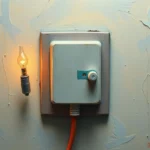
Introduction
Dreams serve as a fascinating window into our subconscious minds, often reflecting our innermost thoughts, fears, and desires. Among the myriad types of dreams, scenarios involving house arrest can evoke strong feelings of confinement, restriction, and introspection. This concept resonates deeply with people, as it symbolically represents situations where one might feel trapped or limited in their life. Understanding the symbolism behind such dreams can provide valuable insights into our waking experiences, making it a topic of great relevance.
Exploring the meaning of being under house arrest in dreams not only invites us to consider our emotional states but also encourages us to reflect on our relationships, responsibilities, and the boundaries we impose on ourselves. In this article, we will delve into the symbolism and meaning of house arrest in dreams, explore key scenarios and variations, and provide real-life connections and takeaways to help readers gain a deeper understanding of their experiences.
Symbolism and Meaning
Dreams of house arrest often symbolize restriction and isolation. The house itself can represent the self, with its walls symbolizing the boundaries we create—either voluntarily or involuntarily. When one dreams of being placed under house arrest, it may indicate feelings of being trapped in a certain situation or relationship. This sense of confinement can manifest in various aspects of life, including career, personal relationships, or even internal struggles.
The idea of house arrest also brings forth themes of control and authority. In many cases, individuals may dream of external forces imposing restrictions upon them, reflecting their feelings of powerlessness or lack of autonomy in their waking life. Such dreams can be a manifestation of the pressures one feels from society, family, or even internal expectations.
Moreover, house arrest may also symbolize a period of reflection. When we are confined to a space, we often have the opportunity to engage in self-examination. This can lead to personal growth and understanding, as we confront the aspects of our lives that feel limiting. It invites a dual interpretation—while the dream may highlight feelings of entrapment, it also opens the door to self-discovery and introspection.
Key Scenarios and Variations
The context and details surrounding a dream of house arrest can greatly influence its interpretation. For instance, dreaming of being voluntarily under house arrest might suggest a desire for solitude or a need to withdraw from the chaos of life. This scenario can reflect a conscious choice to take a break or to focus on self-care. It may indicate a period of healing or preparation for a significant change.
In contrast, dreaming of being placed under house arrest against your will can evoke feelings of frustration and helplessness. This type of dream might indicate that there are external pressures or responsibilities weighing heavily on you. It could represent a situation in your life where you feel controlled or limited by others, highlighting the need to assert your independence and reclaim your agency.
Another variation involves the dreamer attempting to escape from the confines of house arrest. This scenario can be particularly revealing. If one dreams of breaking free, it may symbolize a strong desire for change or liberation from burdensome situations. It suggests an inner resolve to overcome obstacles and reclaim personal freedom. Conversely, if the escape attempt fails, it might indicate feelings of defeat or the challenges faced when trying to break free from restrictive circumstances.
Additionally, the presence of others in the dream can also shape its meaning. For instance, dreaming of being under house arrest with family members may reflect familial obligations or the feeling of being trapped within family dynamics. Alternatively, being alone during this dream might signify introspection and a solitary struggle with one’s thoughts and feelings.
Ultimately, the nuances of each dream scenario can offer profound insights into the dreamer’s emotional landscape. By reflecting on these different variations, individuals can gain a clearer understanding of their feelings of confinement and the factors contributing to their sense of restriction.
Real-Life Connections and Takeaways
Dreams of house arrest often serve as a mirror reflecting our waking lives. They challenge us to confront the limitations we may be experiencing and to explore our feelings regarding control, freedom, and self-identity. To foster deeper self-reflection, consider how these dreams connect to your real-life situations.
Begin by identifying areas in your life where you feel restricted. Are there relationships, responsibilities, or societal expectations that weigh you down? Journaling about these feelings can provide clarity and help you articulate your thoughts. Writing down your dreams can also enhance your self-awareness, allowing you to recognize recurring themes or emotions.
Engaging in mindfulness practices can aid in the process of understanding your dreams. By cultivating a sense of presence, you can better navigate your thoughts and feelings during your waking hours. Consider incorporating meditation or deep-breathing exercises into your daily routine to create space for reflection.
Additionally, communication plays a vital role in addressing feelings of confinement. Reach out to trusted friends or family members to discuss your experiences and emotions. Sharing your thoughts can not only provide relief but may also offer different perspectives that help you see your situation in a new light.
If you find yourself consistently dreaming of house arrest, it might be worthwhile to explore the possibility of seeking professional guidance. A therapist or counselor can assist you in unpacking the emotions and thoughts that arise from these dreams, enabling you to navigate the real-life situations that may be contributing to your feelings of restriction.
Finally, consider the importance of setting boundaries in your life. Sometimes, we impose limits on ourselves that can lead to feelings of confinement. Reflect on whether you are taking on too many responsibilities or allowing others to dictate your choices. Establishing healthy boundaries can empower you to regain control over your life and foster a sense of freedom.
In conclusion, dreams of house arrest serve as powerful reminders of our internal struggles with restriction and autonomy. By exploring the symbolism, variations, and real-life connections of these dreams, individuals can embark on a journey of self-discovery and understanding. Embrace the opportunity to reflect on your feelings of confinement, and use these dreams as a catalyst for positive change in your waking life. The insights gained from such dreams can illuminate the path toward greater freedom and fulfillment, empowering you to break free from the confines of your own making.







